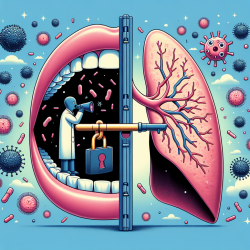Unlock the Secret to Effective Alcohol Use Interventions: What Every Practitioner Needs to Know!
As a Special Education Director, staying informed about the latest research and interventions is crucial for supporting students and families. A recent umbrella review titled "Which interventions for alcohol use should be included in a universal healthcare benefit package?" provides valuable insights into effective strategies for addressing harmful drinking and alcohol use disorder. This blog will explore the outcomes of this research and how practitioners can implement these findings to enhance their skills and support students more effectively.
Key Findings from the Research
The study aimed to identify targeted interventions for the prevention and treatment of harmful alcohol use. It included systematic reviews with meta-analysis of randomized controlled trials (RCTs) on interventions addressing alcohol use in harmful drinkers or individuals with alcohol use disorder. Here are some of the key findings:
- Brief interventions, cognitive behavioral therapy (CBT), and motivational interviewing showed a small effect on harmful drinking.
- Mentoring in adolescents and children may have a significant long-term effect.
- Social network approaches and acamprosate showed evidence of a significant and durable effect for alcohol use disorder.
- More evidence is required on the effectiveness of gamma-hydroxybutyric acid (GHB), nalmefene, and quetiapine.
Implementing Research Outcomes
Practitioners can enhance their skills by incorporating the following strategies based on the research findings:
1. Utilize Brief Interventions and Motivational Interviewing
Brief interventions and motivational interviewing can be effective tools in reducing harmful drinking. Practitioners should consider integrating these techniques into their practice to support students and families struggling with alcohol use.
2. Focus on Mentoring Programs
Mentoring programs for adolescents and children can have a significant long-term impact on reducing harmful drinking. Practitioners should advocate for and implement mentoring initiatives within their schools and communities.
3. Explore Social Network Approaches
Social network approaches have shown promise in addressing alcohol use disorder. Practitioners should consider collaborating with community organizations and support groups to leverage social networks in their interventions.
4. Stay Informed on Emerging Interventions
Practitioners should stay informed about emerging interventions such as GHB, nalmefene, and quetiapine. Continued research and professional development in these areas can enhance the effectiveness of interventions.
Encouraging Further Research
While the research provides valuable insights, it also highlights the need for further studies to explore the effectiveness of various interventions across different settings. Practitioners are encouraged to engage in research initiatives and collaborate with academic institutions to contribute to the growing body of knowledge in this field.
To read the original research paper, please follow this link: Which interventions for alcohol use should be included in a universal healthcare benefit package? An umbrella review of targeted interventions to address harmful drinking and dependence.










